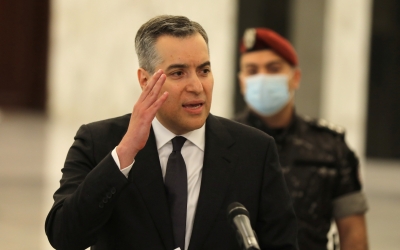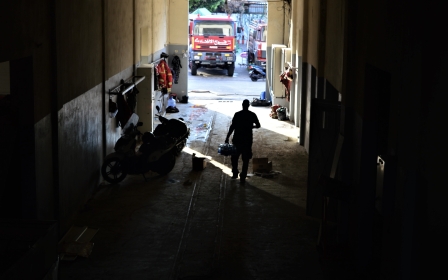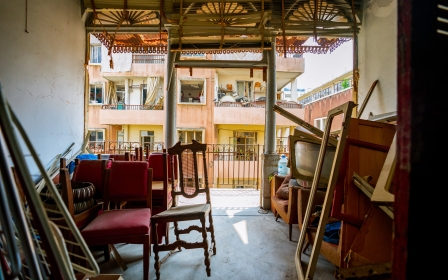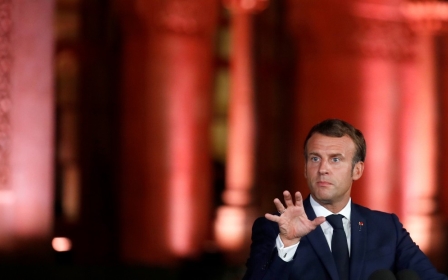Lebanon's PM-designate resigns in blow to French initiative
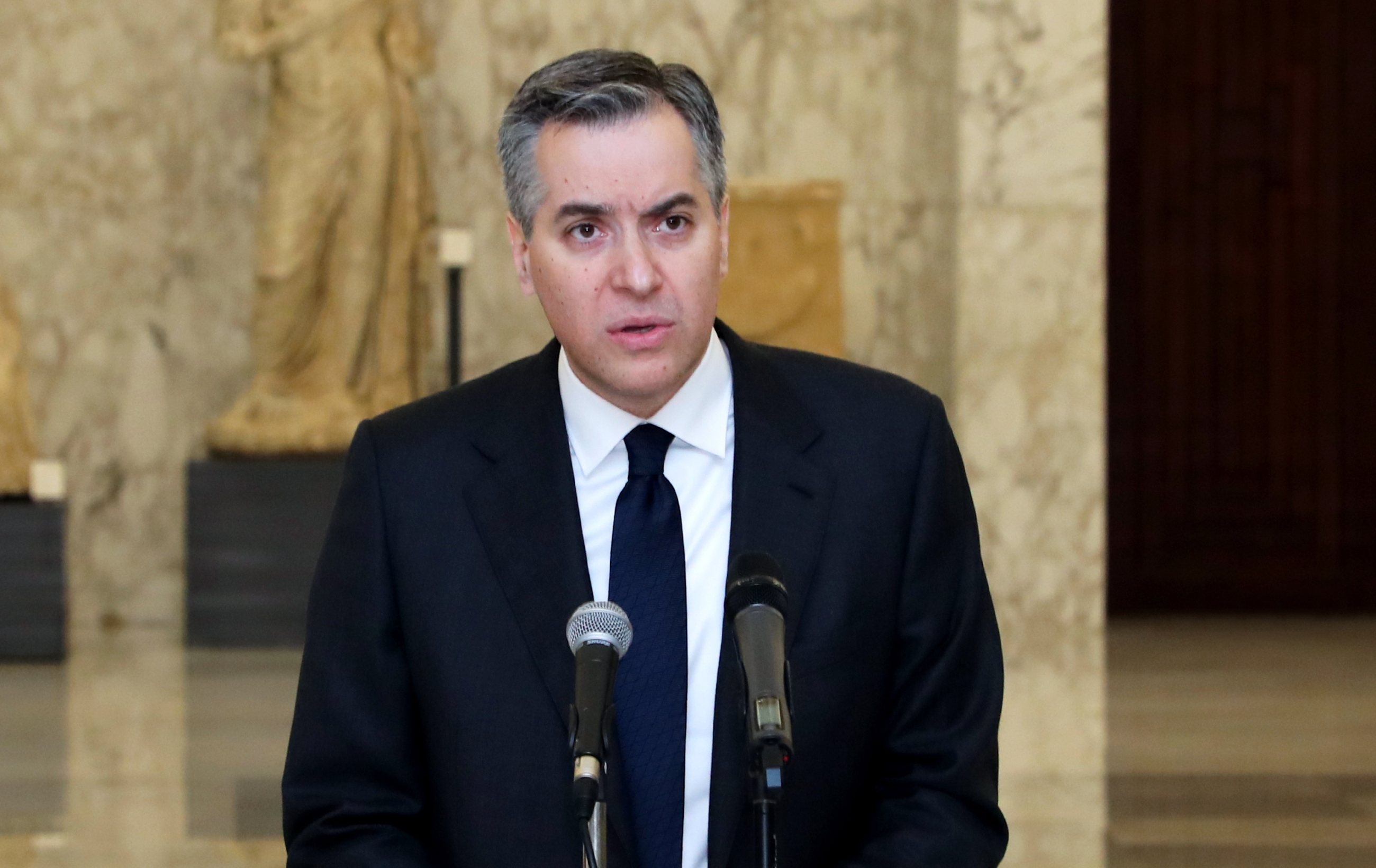
Lebanon's Prime Minister-designate Mustapha Adib resigned on Saturday, less than a month after his appointment, amid international pressure on Lebanese leaders to form a non-partisan government after the disastrous port explosion in August.
"I excuse myself from continuing the task of forming the government," Adib said in a televised speech, apologising to the Lebanese people for his "inability to realise its aspirations for a reformist team" to save the country.
Adib was appointed on 31 August to form a government after French President Emmanuel Macron intervened to ensure an agreement on naming him.
The prime minister-designate submitted his resignation to President Michel Aoun in Baabda Palace during a meeting initially intended to carry on negotiations over a new cabinet.
"With the effort [of forming a government] reaching its final stages, it became clear that there was no longer a consensus," Adib said in his brief statement. "I have previously notified the [parliamentary] blocs that I'm not entering into any political matters, and I informed them that I'm not proposing names that would provoke them."
He added that he was adamant that Macron's efforts – dubbed the French initiative – to save the economically devastated country do not come to a halt.
A source close to Macron told Reuters that France will not let Lebanon down, and that Adib's resignation constitute a "collective betrayal" by Lebanese parties.
Macron visited Lebanon twice in the span of a month following the Beirut port explosion on 4 August that killed almost 200 people and injured over 6,500. The French have since tried to up diplomatic pressure on Lebanon to form a new consensus government that would implement urgent economic and structural reforms to unlock international aid.
Lebanon has been in financial meltdown over the past year, with at least 55 percent of the population now living in poverty.
Adib said he was initially optimistic knowing that the main parliamentary blocs backed his plan to bring in a reformist government but it soon became clear that he no longer had support from all political forces.
"As the efforts to form a government reached their final phase, it became apparent to me that this consensus...was no longer there and that forming one according to the criteria I had determined was bound to fail," he said.
French initiative at risk
Nadim Houry, executive director of Arab Reform Initiative, told Middle East Eye that Adib was supposed to be a compromise candidate who would carry out the "minimal understanding" that the country's political leaders agree to.
"It turns out the oligarchs could not even agree on basics despite the country's descent to hell and the carrot of foreign aid that Macron dangled before them," he said.
"Their greed knows no limits. The system cannot be reformed, it must be changed."
Aoun's office issued a statement, saying that Adib "presented the difficulties he faced in trying to form a new government" before submitting his letter of resignation.
The president also said the French initiative is ongoing.
Adib was appointed on 30 August with endorsements from the majority of the country's ruling parties. His statement expressing his commitment to forming a reformist government met with praise from much of the international community.
"The opportunity for our country is small, and the mission I have accepted is based on all the political forces acknowledging that," he said after his appointment.
Adib has since faced serious difficulties in forming a government, notably in regards to the finance ministry, which Speaker Nabih Berri and Hezbollah stressed should be allocated to a Shia Muslim.
Ex-prime minister Saad Hariri suggested a middle-ground option of having an independent Shia finance minister of Adib's choice, which was welcomed by Macron. It appeared that the deadlock was to break soon, as Adib held meetings and consultations, but not to avail.
Hariri, who had initially nominated Adib, on Saturday commended the PM-designate's efforts, while also indirectly slamming Hezbollah and Berri's party, the Amal Movement.
"The insistence on keeping Lebanon hostage to foreign agendas has exceeded our ability to turn corners and make sacrifices," Hariri's statement read.
Hariri praised Macron, and said those who celebrate the collapse of the initiative "will bite your fingers in regret".
Meanwhile, Berri said his group is still committed to Macron's initiatives, but said there are some trying to sink it.
The French initiative could be at risk, with Foreign Minister Jean-Yves Le Drian saying in the days leading to Adib's appointment that Lebanon could "disappear" if swift changes are not made.
"Adib's resignation underlines the fundamental need for reform in Lebanon and the intransigence of Hezbollah and Amal as a main hurdle for reform," Lina Khatib, the head of the Middle East and North Africa Programme at Chatham House, told MEE, adding that the two parties will continue "to play the waiting game" until the odds are in their favour.
"The French initiative experience so far illustrates that accommodating the status quo in Lebanon only serves to entrench the country's problems rather than solve them."
Houry, meanwhile, said that, while Hezbollah and Amal were the immediate obstacle to reform this time around, it was "the entire political class" that brought Lebanon into the current crisis.
Middle East Eye delivers independent and unrivalled coverage and analysis of the Middle East, North Africa and beyond. To learn more about republishing this content and the associated fees, please fill out this form. More about MEE can be found here.


